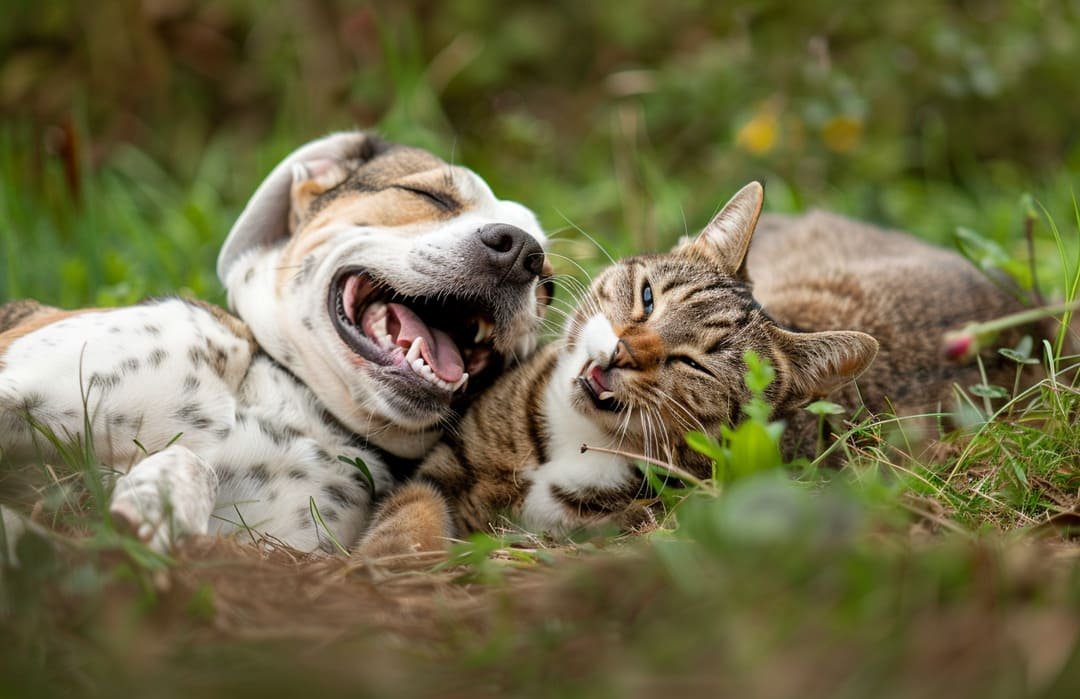Pets' dental health is a critical aspect of their overall well-being, and veterinary professionals play a pivotal role in safeguarding the oral hygiene of our furry companions. As guardians of animals' dental wellness, veterinary professionals continuously strive to uphold high standards of care and promote preventive measures to ensure pets lead healthy and happy lives. In this comprehensive guide, we delve into the essential practices, challenges, and collaborations that define top-tier pet dental care within the expertise of veterinary professionals.
Importance of Pet Dental Care for Veterinary Professionals
Overview of Dental Health in PetsEnsuring proper dental care for pets is a crucial aspect of overall health, and veterinary professionals play a key role in promoting this. Poor dental health can lead to various issues affecting pets' well-being, including pain, infections, and even systemic diseases.
Statistics on Pet Dental IssuesStatistics show that a significant percentage of pets seen by veterinary professionals suffer from dental problems. Dental diseases such as periodontal disease and gingivitis are among the most common issues encountered during routine check-ups.
Role of Veterinary ProfessionalsVeterinary professionals have a responsibility to educate pet owners about the importance of dental care. By providing guidance on preventive measures, conducting thorough dental examinations, and recommending appropriate treatments, they contribute to maintaining pets' oral health and overall quality of life.
Key Points to Remember:
-
Regular dental check-ups are essential for early detection and prevention of dental issues in pets.
-
Timely intervention by veterinary professionals can help address dental problems effectively.
-
Collaborating with veterinary dentists can ensure comprehensive care for pets with complex dental needs.
For more in-depth information on dental care best practices for veterinary professionals, you can refer to the American Veterinary Dental College's guidelines here: AVDC Dental Care Guidelines
Common Dental Problems Encountered by Veterinary Professionals
Types of Dental Diseases
In their practice, veterinary professionals often encounter a range of dental issues in pets. These may include periodontal disease, which affects the structures supporting the teeth, leading to inflammation and potential tooth loss. Another common problem is gingivitis, characterized by red, swollen gums caused by the accumulation of plaque and bacteria.
Symptoms and Signs to Look Out For
During dental examinations, veterinary professionals should watch for signs such as bad breath, swollen or bleeding gums, and changes in eating habits. Pets may also show reluctance to chew or sensitivity around the mouth, indicating potential dental problems that need attention.
Importance of Regular Check-ups
Regular dental check-ups are vital for identifying dental issues early on. By staying vigilant and conducting thorough examinations, veterinary professionals can diagnose problems promptly and recommend appropriate treatments to prevent further complications.
Key Takeaways:
-
Periodontal disease and gingivitis are prevalent dental issues in pets seen by veterinary professionals.
-
Observing symptoms like bad breath and swollen gums can help in early detection of dental problems.
-
Scheduling routine dental check-ups can aid in maintaining pets' oral health and addressing issues proactively.
For further insights on dental care protocols recommended by leading veterinary organizations, you can visit the American Veterinary Medical Association's webpage on pet dental health: AVMA Pet Dental Health.
Best Practices for Dental Examinations by Veterinary Professionals
Conducting Thorough Dental Examinations
Veterinary professionals should follow a structured approach when performing dental examinations on pets. This includes checking for signs of plaque buildup, gum inflammation, loose teeth, and other dental abnormalities. Using proper lighting and specialized tools is essential for a comprehensive assessment.
Equipment for Dental Assessments
Having the necessary equipment is crucial for conducting effective dental examinations. Veterinary professionals should have dental probes, mirrors, and scalers to aid in assessing the pet's oral health accurately. Utilizing dental radiography can provide detailed insights into the pet's dental condition.
Communication with Pet Owners
After completing the examination, veterinary professionals must communicate their findings clearly to pet owners. This includes explaining any issues discovered, outlining treatment options, and emphasizing the importance of dental care in maintaining the pet's overall health. Providing educational materials can also help reinforce the message.
Key Recommendations:
-
Adopt a systematic approach to dental examinations to ensure no issues are overlooked.
-
Invest in high-quality dental examination tools and equipment for accurate assessments.
-
Establish open and informative communication with pet owners regarding their pet's dental health.
For additional resources on advanced dental examination techniques for veterinary professionals, refer to the British Veterinary Dental Association's educational materials here: BVDA Dental Examination Techniques.
Dental Cleaning Techniques for Veterinary Professionals
Methods for Dental Cleaning
Veterinary professionals possess various techniques for performing dental cleanings on pets. Brushing is a fundamental method that helps remove plaque and prevent tartar buildup. Scaling involves the removal of hardened plaque and tartar using specialized instruments, promoting optimal oral hygiene. Polishing the teeth after cleaning aids in smoothing the tooth surface and reducing bacteria retention.
Professional Cleanings vs. Home Care
While pet owners can maintain their pets' dental health at home through regular brushing, professional cleanings by veterinary professionals are necessary to address deeper dental issues. Professional cleanings involve a more thorough removal of plaque and tartar, inspection of dental structures, and guidance on preventive dental care practices.
Educating Pet Owners
It is imperative for veterinary professionals to educate pet owners on the importance of both professional cleanings and at-home dental care. Providing demonstrations on proper brushing techniques, recommending suitable dental products, and emphasizing the significance of regular dental check-ups can empower pet owners to actively participate in their pets' dental health.
Key Points to Consider:
-
Understanding and utilizing different dental cleaning techniques can enhance pets' oral health.
-
Professional dental cleanings offer deeper cleaning and preventive care beyond what is achievable at home.
-
Educating pet owners on effective dental care practices is essential for comprehensive dental health maintenance.
For additional insights on advanced dental cleaning methods for veterinary professionals, explore the American Veterinary Dental Society's resources on comprehensive dental care: AVDS Dental Cleaning Methods.
Dental Health Nutrition for Veterinary Professionals
Role of Nutrition in Dental Health
Nutrition plays a vital role in supporting pets' overall dental health. Veterinary professionals understand that a balanced diet not only contributes to pets' general well-being but also influences their dental hygiene. Proper nutrition can help prevent plaque formation, support gum health, and maintain strong teeth in pets.
Recommended Diets and Treats
Veterinary professionals recommend specific diets and treats that promote dental health in pets. Dental diets are formulated to reduce plaque and tartar buildup, improve gum health, and prevent dental diseases. Additionally, dental treats can aid in cleaning teeth, freshening breath, and providing oral health benefits for pets.
Addressing Nutritional Concerns
In cases where pets have specific nutritional concerns related to dental issues, veterinary professionals must provide tailored dietary recommendations. Understanding the impact of nutrients on dental health allows professionals to customize diets to address individual pets' unique needs and support optimal oral hygiene.
Key Considerations:
-
Recognizing the significance of nutrition in maintaining pets' dental health is essential for veterinary professionals.
-
Recommending dental-specific diets and treats can enhance pets' oral hygiene and prevent dental problems.
-
Tailoring nutritional guidance to address individual pets' dental concerns contributes to comprehensive dental care.
For further information on the role of nutrition in promoting dental health in pets, explore the guidelines provided by Hill's Pet Nutrition, a trusted name in pet care: Hill's Pet Nutrition Dental Health Guidelines.
Collaborating with Veterinary Dentists as Veterinary Professionals
Recognizing the Need for Specialized Care
Veterinary professionals understand that some complex dental cases require specialized expertise beyond their scope of practice. In such instances, collaborating with veterinary dentists becomes crucial to ensure pets receive the advanced dental care they need. Veterinary dentists have specialized training and equipment for treating intricate dental issues.
When to Refer Cases
Knowing when to refer cases to veterinary dentists is an important decision for veterinary professionals. Cases involving severe dental diseases, complicated oral surgeries, or intricate dental abnormalities may warrant a referral to a veterinary dentist. By recognizing the limitations of their expertise, veterinary professionals can prioritize the well-being of their patients.
Importance of Interdisciplinary Teamwork
Effective collaboration between veterinary professionals and veterinary dentists fosters interdisciplinary teamwork for comprehensive pet dental care. By working together, professionals can combine their knowledge, skills, and resources to provide optimal treatment outcomes for pets with complex dental conditions. This teamwork ensures a holistic approach to pet dental health.
Building Strong Relationships
Building strong relationships with veterinary dentists is beneficial for veterinary professionals seeking to enhance their practice. Establishing a network of trusted specialists allows veterinary professionals to access expert opinions, share resources, and collaborate on challenging cases, ultimately benefiting the pets under their care.
Key Points to Remember:
-
Collaboration with veterinary dentists is essential for managing complex dental cases in pets.
-
Referring cases to specialists when necessary ensures pets receive appropriate care.
-
Establishing and maintaining relationships with veterinary dentists enhances the quality of pet dental care services.
For more insights on the benefits of interdisciplinary collaboration in pet healthcare, you can explore the resources provided by the Veterinary Dental Specialists at Banfield Pet Hospital: Banfield Veterinary Dental Specialists.
FAQs About Pet Dental Care for Veterinary Professionals
Q: What are the common signs of dental problems in pets that veterinary professionals should watch for?
A: Veterinary professionals should look out for signs such as bad breath, inflamed gums, tartar buildup, loose teeth, and changes in eating habits in pets, which could indicate underlying dental issues.
Q: How often should pets undergo professional dental cleanings by veterinary professionals?
A: Pets should ideally receive professional dental cleanings annually, but the frequency may vary based on the individual pet's dental health and risk factors.
Q: Can dental diets and treats truly improve pets' dental health, as recommended by veterinary professionals?
A: Yes, specialized dental diets and treats formulated to promote oral hygiene can help reduce plaque and tartar buildup, maintain healthy gums, and support overall dental health in pets.
Q: When should veterinary professionals consider referring dental cases to specialized veterinary dentists?
A: Veterinary professionals should consider referral in cases of complex dental diseases, advanced oral surgeries, or difficult dental abnormalities beyond their expertise.
Q: How can veterinary professionals effectively communicate the importance of dental care to pet owners?
A: Veterinary professionals can educate pet owners through clear explanations, demonstrations of dental care practices, providing educational materials, and emphasizing the significant role dental care plays in pets' overall health and well-being.


